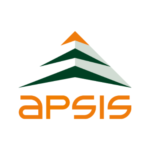IACVA International Business Valuation Symposium – International Association of Consultants, Valuators and Analysts: a genuinely international event
APSIS’ Vice-President took part in the IACVA congress, held at the beginning of October, in Chicago-USA, which brought together professionals from the entire world to discuss issues of concern and trends on company valuation and intangible assets throughout the planet.
Among the participants, there were, among others, representatives from Brazil, China, the United States of America, Canada, India, Slovenia, Ghana, Australia, Russia, who discussed the critical valuation process points, in constant change in this accounting practice harmonization scenario, especially Fair Value (Valor Justo), put in place in January of this year.
In addition to the difficulties regarding new Fair Value and its measuring, issues were also approached, such as lack of reconciliation of different methodologies in valuation assessments performed by different approaches, as well as low report quality. The valuators, pressed by deadlines and complex calculations, often invest little time in clear valuation report preparation, a basic step upon presentation and description of the valuation process, not only to the clients, but also to the market, in case of a public document. In a valuation process displaying different approaches (such as application of multiples x discounted cash flow), reconciliation is a basic step to understand and explain the various results found by each method and judge, technically, the most appropriate value standard for the asset under study and the specific purpose of the work. Lack of integration between the various valuation professionals is still a factor preventing speed in best practice harmonization. This is perfectly noticed in the IACVA challenges to develop international Charters, to calibrate the international standards vis-à-vis local practices.
Despite the widely-debated difficulties, the valuation market remains in an ever-growing pace already displaying new research and study demands, such as the complex Financial Instruments and the uptake of tangible asset valuation itself, especially the real estate area and that of Machinery & Equipment, as a way to tranquilize investors with a second, approach, not only focused on theoretical models, such as cash flow. This tangibility is also manifested in work completion. In this full era of virtual reports (PDF), reports are being again required in print (physical) form by the clients, who would be able to consult them quickly on the shelf.
The diversity of countries and professionals has greatly enriched the congress, and made clear that, despite local challenges, most issues and complexities are common to the different continents. Some countries, like Russia and Ghana, have their Charters set up, whereas others are still seeking for the best form to consolidate isolated initiatives. Brazil Charter, in formation through the CBAN – Comitê Brasileiro de Avaliadores de Negócio (The Brazilian Business Valuator Committee) stood out in South America, and will start providing both Business Valuation Training in Portuguese, as well as the CVA – Certified Valuation Analyst certification, for valuating companies and intangible assets in November and December of this year.


